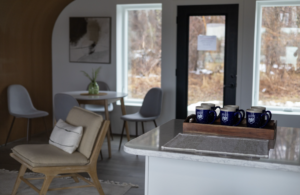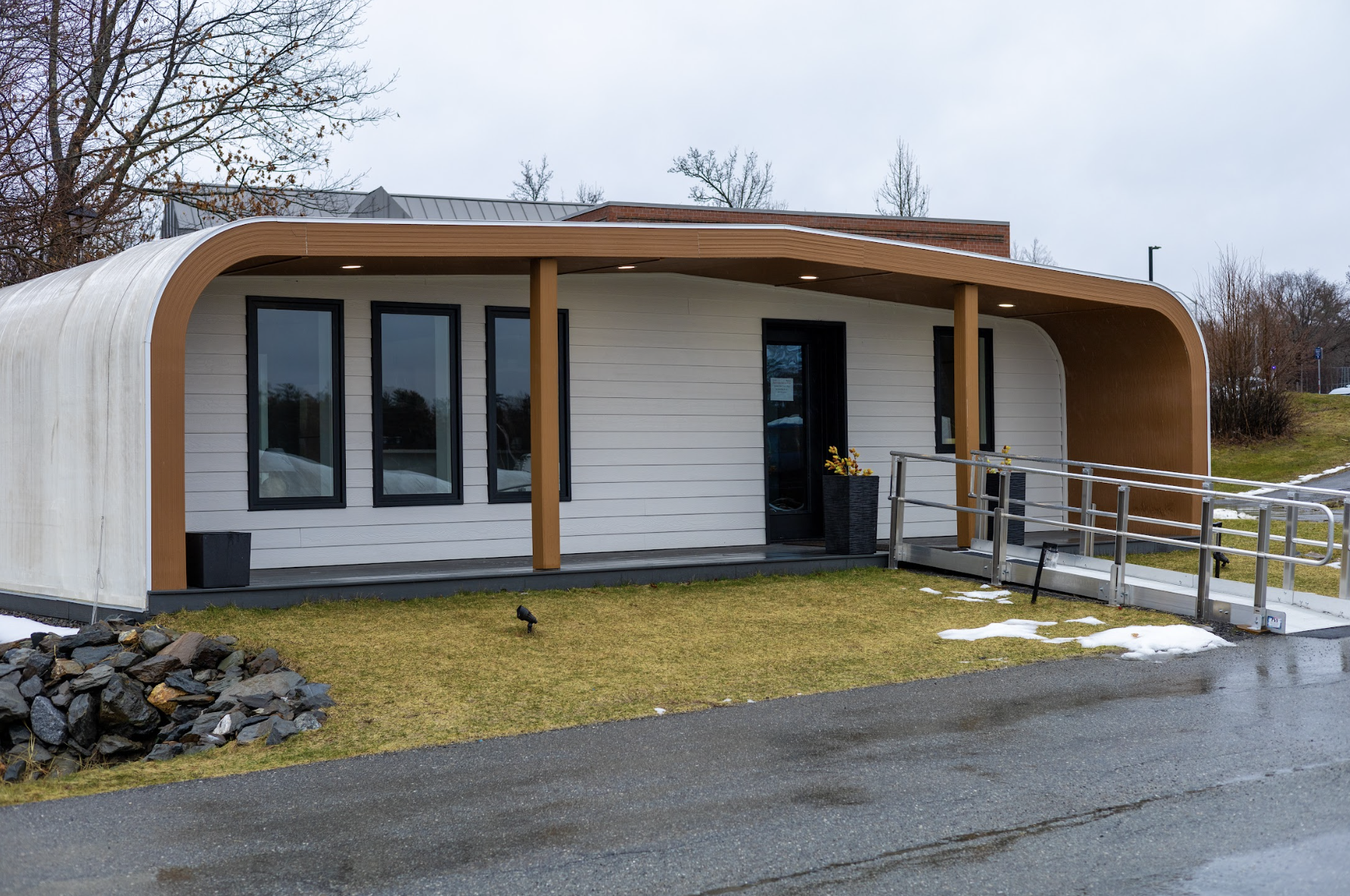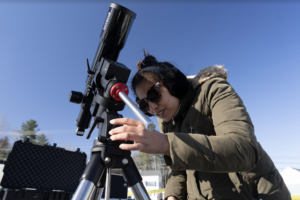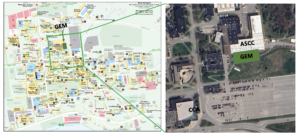A proposal pushed by U.S. Senator Susan Collins of Maine, passed by the Senate and signed into law by President Joe Biden allocates $4 million toward the University of Maine BioHome3D project. The Congressionally Directed Spending (CDS) request falls within the Fiscal Year 2024 Energy and Water Developments Appropriation Bill. Collins is vice chair of the Senate Appropriations Committee.
The BioHome3D, facilitated by the Advanced Structures and Composites Center, is a 3D-printed house made entirely of recycled forest materials. Its economical and sustainable method of construction plan to alleviate the housing crisis in Maine. The federal funding contributes to further research and development, supporting an expansion of UMaine’s innovative technology. Specifically, the funding aids the advancement of wood residuals used for manufacturing purposes to elevate printing capabilities.
“I went to the ribbon-cutting for that and couldn’t believe how nice it was,” said Collins. “The fact that there is such strong, I would say even unprecedented state, national and international interest shows the promise of this technology.”
The 600-square-foot prototype on campus withstood harsh winter tests. Collins emphasized that the severe affordable housing problem is not unique to Maine and affects citizens all across the country. She hopes that the proven success of sustainable homes will bring forth an international expansion of its technology.
The Penquis Community Action Program is a non-profit agency that serves low-income residents in the Penobscot and Piscataquis counties. Penquis seeks to build and test the first neighborhood of 3D-printed small homes in the Bangor region, which is a strong indicator of interest in the technology. The development is currently in the planning stages.

The process of securing support from Collins to receive federal funding adheres to firm guidelines. Firstly, applications must be submitted by nonprofit organizations or governing entities such as a town, county or state. The program will refuse for-profit organizations or businesses. Another aspect of the procedure is presenting four letters of recommendation per applicant to illustrate extensive, outside support for the cause.
State office representatives from offices in Augusta, Portland, Bangor, Lewiston, Caribou and/or Washington D.C. will then review the candidates. Each is assessed based on budget breakdowns and the presentation of how the proposed project serves the community.
“We make sure that we fully understand how the funds are going to be used, what needs will be addressed by the funding, if funding will create jobs and this is important, how the project will become self-sustaining,” said Collins.
The UMS requested a specific amount and outlined the exact initiatives that the finances will cover. Collins explained that the initial action upon granting approval is to publish details about the CDS on her webpage to lay out how much funding is being advocated for whom and the purpose of doing so.
“I am a strong believer in transparency and getting those projects out there for my colleagues to see and for the public to see. Then, I will get specific questions from some of my colleagues on why the project is worthy of federal funding,” Collins said.
Collins believes that investing in a new future of construction will positively impact low-income families. The technology is environmentally conscious and has the potential to serve the at-risk population in the U.S.
The use of forest residuals plays a part in the BioHome3D project. Scrap wood and sawdust are put to use, contributing to the Forest Products Industry, an important part of Maine’s economy. The Maine Forest Products Council is another coalition that is interested in working with UMaine to advance the newfound technology.
“The biomass that is being used is important, it helps our environment. I am also excited that Maine could be a leader in creating an entirely new industry if you think about it,” Collins said.
Furthermore, federal funding helps support the training of over 200 students at UMaine. They will graduate with general experience in additive manufacturing using 3D printers, a skill in high demand. Collins shared that with paper mills closing in Maine such as in Old Town and Jay, towns lose a sizable employer.
“If we can figure out an environmentally friendly, sustainable new use for forest products in these printed homes, that’s a good thing for those who previously have worked in our papermill,” said Collins, “and it’s a good thing for those who are loggers and others who are working in the forest product industry because it’s a brand new use and that’s really helpful.”













